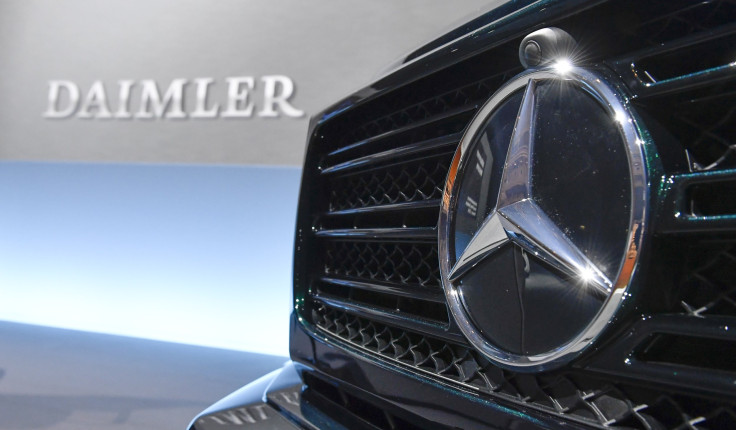Mercedes-Benz Adds Hands-Free Technology To Its Highway Truck

Daimler AG announced on Wednesday it is giving its Mercedes-Benz highway truck model a new safety feature that will let the vehicle take control of steering and braking.
The German-based automaker has outfitted the Mercedes Actros with hands-free steering technology, using a system of cameras and radars that allow it to steer and brake without limitations.
When switched on, the new technology will keep the truck in its lane. It can also initiate an emergency brake which could prevent the vehicle from colliding with traffic. The driver is also able to see their surroundings via two 15-inch monitors inside the truck. The absence of side mirrors lessens the vehicle's weight and as a result, it will consume 3 percent less fuel on highways, Mercedes said.
"Our Actros makes the logistics business significantly safer for all participants and more efficient for our customers," Mercedes-Benz trucks chief Stefan Buchner said in a statement on Wednesday. "The new Actros already puts the future of heavy-duty trucks on the road today."
Mercedes new hands-free steering option comes at a time where more and more self-driving vehicle projects are being launched.
In July, Daimler and auto components maker Bosch said they will launch an autonomous shuttle service in Silicon Valley in early 2019. The pilot project will offer free rides to a limited number of customers on "selected routes," the companies said.
The two companies also promised to have a self-driving car by the year 2021. Several other vehicle businesses including Waymo, General Motors and Uber have announced plans to produce self-driving vehicles.
Daimler has made efforts to boost car technology, unveiling a new battery-operated EQC vehicle Tuesday in Stockholm and with plans to add 10 electric car models by 2022. It has reportedly spent more than $12 billion developing battery-operated vehicles.
© Copyright IBTimes 2025. All rights reserved.





















